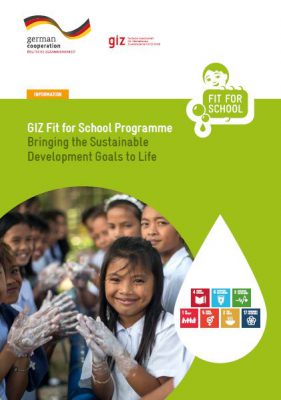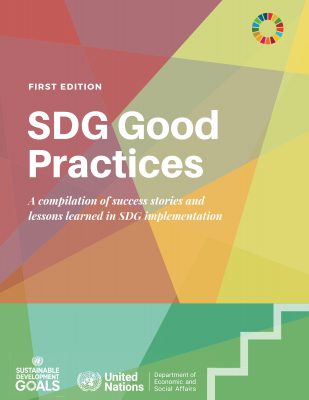The regional Fit for School program has been selected as one of 16 outstanding Sustainable Development Goals (SDGs) Good Practices across the world to be featured in the UN Department for Economic and Social Affairs (DESA) digital publication “First Edition-SDG Good Practices: A compilation of success stories and lessons learnt in SDG implementation.”
At the occasion of the publication´s virtual launching event on 02 December 2020, Ms. Kerstin Nagels, the Acting Head of the Department for Asia, Latin America and the Caribbean of GIZ, outlined some of the remarkable upscaling success stories of the Fit for School approach and program, observing that “with partner monitoring systems as its sources, the Fit for School M&E Framework documents that by 2020 more than 14.9 million children have directly been reached by the Fit for School programme”.
Five years into the implementation of the 2030 Agenda and the SDGs, many Governments, UN entities, international and regional organizations and stakeholders are stock-taking of progress: What are the inspiring breakthroughs and success stories that are showing results and impacts? What are the good practices that can be replicated and scaled up? What are the gaps and constraints and how should we address them?
To help answer these and other questions, the Division for Sustainable Development Goals (DSDG) in the United Nations Department of Economic and Social Affairs (UN DESA) launched a call for submissions of good practices, success stories and lessons learned by national governments and all stakeholders in the implementation of the 2030 Agenda and the SDGs and the results are made available in an online database of more than 500 good practices (which can be found HERE).
The Fit for School Approach strengthens school-based management to support the implementation of water, sanitation and hygiene programmes, including daily handwashing and toothbrushing and regular deworming, to address pandemic preparedness and high-impact diseases. Combined with improved access to clean water, washing facilities and appropriate sanitation, key determinants of health are addressed in a single intervention package.
A closer exploration of the Fit for School approach and its linkages to the various SDGs can be found HERE (or by clicking the cover picture below).
GIZ was commissioned by the German Federal Ministry of Economic Cooperation and Development (BMZ) to implement the Regional Fit for School Programme since 2011 in partnership with the Southeast Asian Ministries of Education Organization (SEAMEO) and its Regional Center for Educational Innovation and Technology (SEAMEO INNOTECH) in the Philippines, Indonesia, Cambodia and Lao PDR.



